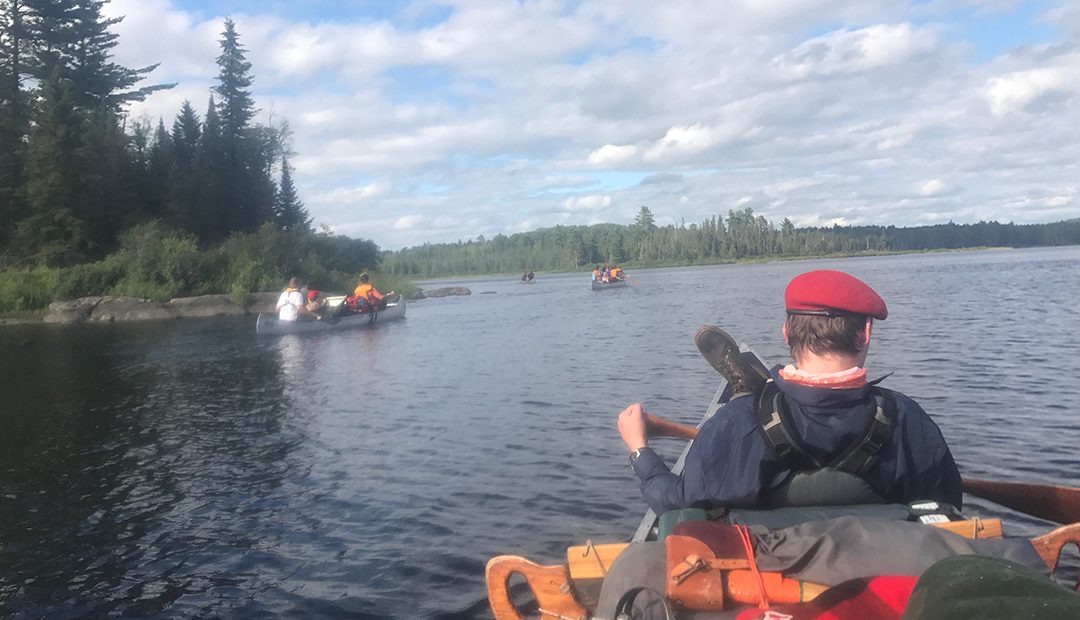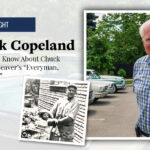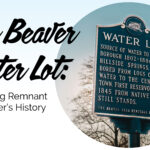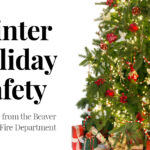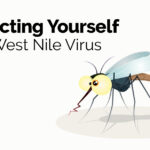The calls of a loon, rivers as clear as glass, the rich smell of cedar trees, the refreshing touch of morning mist, and the wonder of sleeping under the Northern Lights… these are just some of the once-in-a-lifetime experiences participants of the Canoe Trails program are rewarded with.
Canoe Trails is a high-adventure experience based in Beaver, PA that has affected the lives of over 7,500 people over the course of about 70 years. It started as the dream of one man, Dr. Everett P. Partridge, who started the program in 1947 when he led Beaver’s Boy Scout Troop 406 and took them on Canadian canoe trips. The program went district-wide by 1951 and in 1965, the program was made co-ed by Mr. George S. Wildman. The program ran has run continuously since 1957.
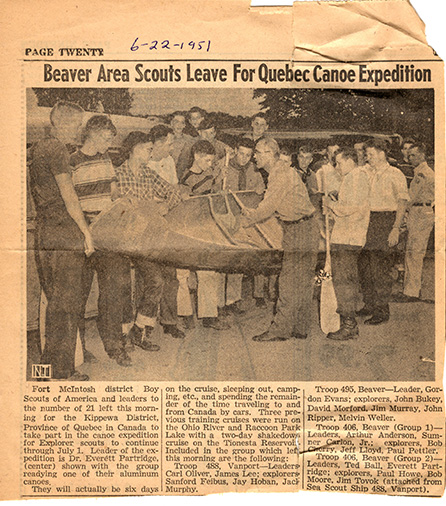
1951 newspaper article regarding one of the first trips led by Dr. Everett Partridge.
“I’ve been canoeing and kayaking for over 50 years, but had it not been for this program, I wouldn’t have,” reminisced Jeff Lloyd, a Beaver resident “Voyageur” (a title bestowed to Canoe Trails participants). Between 1951 and the early 1990s, Mr. Lloyd completed an estimated 14 Canoe Trails trips to Canada. Though it has been many years since his last trip, he still takes his canoe out on the Beaver River.
Anyone who is at least 14 years-old by August 2019 may participate in the Canoe Trails program after passing a training course. Those who pass the training will be invited to participate in a 1-week canoeing cruise on the pristine rivers and lakes in the remote and rugged wilderness of Kipawa, Quebec.
The training includes four indoor meetings, an outdoor training session, and three weekend trips to Tionesta, PA. During training, participants learn primitive camping skills such as how to set up camp, build a fire, cook, use a knife/saw/ax, tie knots, read a map and compass, paddle a canoe, portage, and other general survival skills.
Although learning primitive camping skills is imperative, the program also aims to facilitate the development of critical thinking, problem solving, and communication.
Each participant must be adept in these lessons, as they rely solely on each other during the trip. The participants set up camp, cook meals, and navigate Canada’s waterways as a 3-person canoe team within a larger 18 or 21-person group. It’s possible that the group won’t see another person for days during their journey.
“Participants become stronger and more confident,” said Andy Kullen, another Voyageur. “The program is built on morals and values, so it helps transition youth into adults and helps them become really good citizens.”
The canoeing portion of the 1-week trip kick-offs from the program’s base in Kipawa. From there, the participants live by navigating Kipawa’s rivers and lakes during the day and sleep under the stars in the Canadian forest during the night.
“What I find most awesome is that our destination in Kipawa is a part of the planet that few people will ever have the chance to see. It’s rare to go someplace where the lake water is clean enough to drink, the night sky is clear enough to see the Milky Way, and if there is no wind, the silence is deafening. The nature of it is mind-blowing,” recalls Anthony Perini (18 yo, 2016 Voyageur).
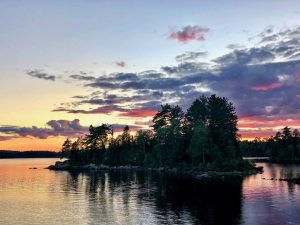
Voyageurs’ view of the night sky, Kipawa, Quebec
Each year’s trip is led by a team of experienced adult Voyageurs and is supported by numerous adult and youth Voyageurs. It is the program’s tradition that Voyageurs also partake in the annual trip, as they conduct the training of the new candidates and use the opportunity to reinforce their skills in a true teaching environment. It is the responsibility of the program’s candidates to learn and of the Voyageurs to grow.
Some Voyageurs feel that the first year is amazing because they acquired so many skills and had tremendous new experiences, but their second, third, fourth, even tenth trip were more enjoyable because they were less overwhelmed by the novel physical and mental challenges and were better able to fully enjoy the comradery and adventure.
The program has such an impact on the lives of its’ participants that individuals will reference their experiences from the program in their job interviews or as the subject for their college essays. Program veterans can captivate you with tales of their experience, even decades later.
“The experience affected us our whole lives, I’m not afraid to tackle anything,” said J.C. Little, who met his wife Wanda when they both became Voyageurs in 1968.
Perhaps the best takeaway from the program is that participants forge lifelong friendships that can only be made when you learn to depend on others as they depend on you. The program has actually produced a few dozen happy couples over the years, including Andy and Geri Kullen, JC and Wanda Little,Rob and Lynn Dinsmore, and Craig and Donna Nunamaker who all met when they participated in the program in the 1970s and 1980s.
“It’s also a great opportunity for families to bond and create lifelong memories, as life often pulls families in different directions, but this program brings you together,” said Jim Perini (54 yo, 2016 Voyageur). “My son, Anthony, and I have gone on two trips together and I could not be prouder of the maturity, confidence, and leadership skills that Anthony has developed.”
A common thread of family and community runs through each of the program’s core values of safety, training, adventure, and responsibility. “We don’t take just anyone to Canada,” says Bryan Carter (41yo, 1990 Voyageur and 2018 trip leader). “Voyageurs know from experience the importance of not compromising on our core values which have been field-tested by families and friends for the past 70 years.” Enrolling in program does not guarantee someone a spot on the next Canadian canoe trip, but it does guarantee them the opportunity to have some fun preparing for an adventure they will hopefully undertake when they are truly ready.
Canoe Trails is the perfect opportunity for adults young and young-at-heart who love the outdoors. If you feel intimidated by the program description, Bryan Carter encourages, “Don’t be afraid and just try it, because you learn as you go.” Last year’s trip covered 124 miles, included 16 portages, and had 10 beaver dams that needed to be traversed. The average daily temperature was 79 degrees with a nightly average of 59 degrees Fahrenheit. But statistics alone can only tell you so much about a trip, for the most exciting details of the trip you will need to talk to one of the Voyageurs from 2018.
“124 miles equated to 124,000 moments I shared and experienced with my two boys, Josh (16yo) and Michael (14yo),”Nathan Weister (43yo, 1990 Voyageur) said.“Our training program relies so heavily on encouragement, self-confidence and perseverance –it’s incredibly rewarding to see the group blossom when they’re put to the challenge up North.” Nate continued, “As a unit we take care of each other –it’s essential. You really see this unfold out in nature.”
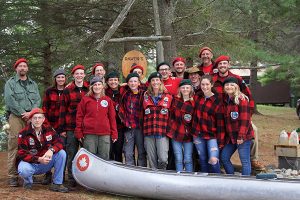
Group photo from the 2017 Canoe Trails trip.
This life-changing 10-day experience costs a fraction of what other vacations may cost. It’s a few hundred dollars per person, which includes all of the training, supplies, and travel. The program holds fundraisers throughout the year to keep costs down.
People interested in participating are invited to the program’s first orientation on March 7 at 7 p.m. at the Canoe Trails Headquarters nicknamed “The Barn” at 298 Division Lane, Beaver. A second orientation opportunity will be held on March 10at 1:00 p.m. at the Barn as well. Jim Perini may also be contacted for additional details at
724-774-8602.

